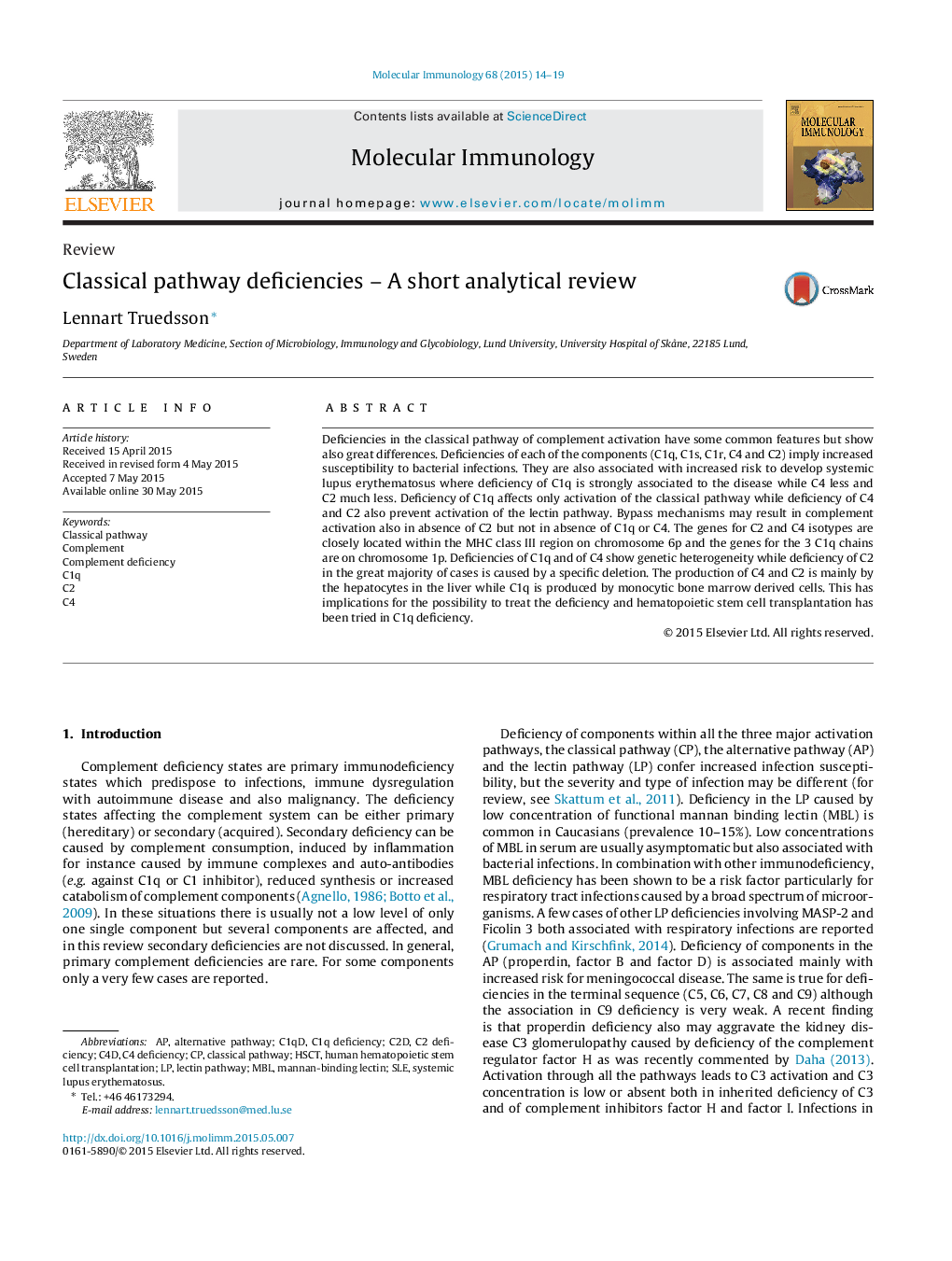| Article ID | Journal | Published Year | Pages | File Type |
|---|---|---|---|---|
| 2830647 | Molecular Immunology | 2015 | 6 Pages |
•Classical pathway deficiencies are associated with bacterial infections and autoimmune disease.•Deficiency of C4 and C2 affect also the lectin pathway.•In C2 deficiency bypass mechanisms allow activation caused by high amounts of specific antibodies.•Risk to develop autoimmune disease is highest in C1q, lower in C4 and lowest in C2 deficiency.•C1q is produced in bone marrow-derived cells which make HSCT a therapeutic possibility.
Deficiencies in the classical pathway of complement activation have some common features but show also great differences. Deficiencies of each of the components (C1q, C1s, C1r, C4 and C2) imply increased susceptibility to bacterial infections. They are also associated with increased risk to develop systemic lupus erythematosus where deficiency of C1q is strongly associated to the disease while C4 less and C2 much less. Deficiency of C1q affects only activation of the classical pathway while deficiency of C4 and C2 also prevent activation of the lectin pathway. Bypass mechanisms may result in complement activation also in absence of C2 but not in absence of C1q or C4. The genes for C2 and C4 isotypes are closely located within the MHC class III region on chromosome 6p and the genes for the 3 C1q chains are on chromosome 1p. Deficiencies of C1q and of C4 show genetic heterogeneity while deficiency of C2 in the great majority of cases is caused by a specific deletion. The production of C4 and C2 is mainly by the hepatocytes in the liver while C1q is produced by monocytic bone marrow derived cells. This has implications for the possibility to treat the deficiency and hematopoietic stem cell transplantation has been tried in C1q deficiency.
